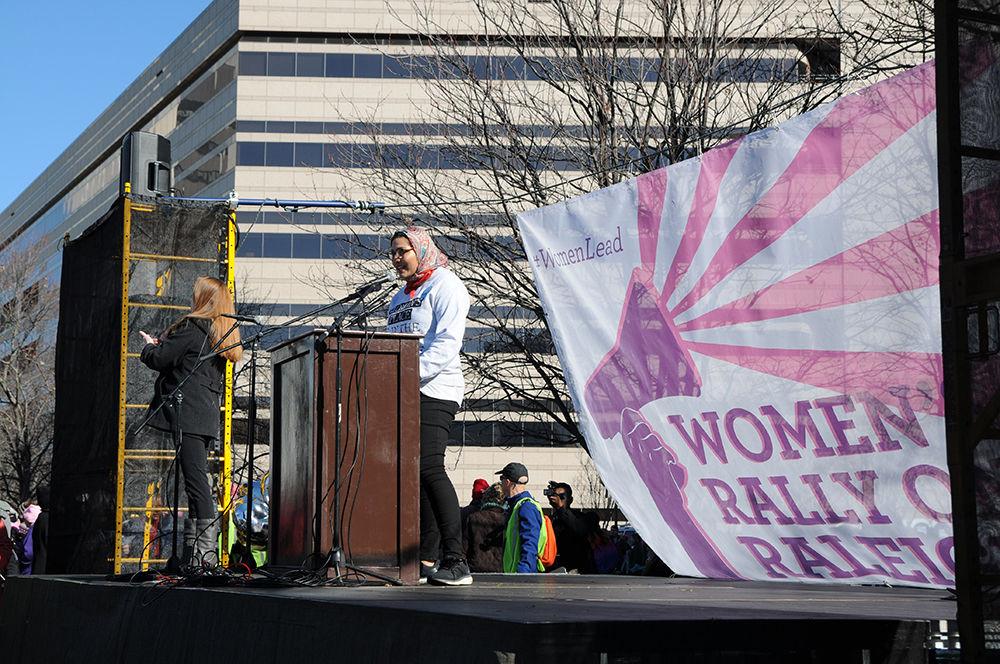The Counseling Center, Student Legal Services and Women’s Center organizations, such as The Movement Peer Educators, offer services and support to accommodate students who have experienced interpersonal violence.
Interpersonal violence encompasses relationship violence, stalking, and sexual assault and harassment. According to the National Coalition Against Domestic Violence, one in five women is sexually assaulted during her time in college. Thirteen percent of college women reported being stalked.
Melissa Babb, the interpersonal violence coordinator at the Counseling Center, discussed how these traumatic experiences can affect a student’s performance in school and overall health.
“You can see somebody who’s maybe a really great student, going to classes every day, doing their assignments go from that to just withdrawing and not going to classes, not doing their assignments,” Babb said. “Sometimes they may actually do the opposite you know. That’s the thing; it’s not it’s not easily predictable how somebody is going to respond, and different people respond in so many different ways.”
At the Counseling Center, survivors can enlist in individual counseling or group counseling sessions such as Survivor, Understanding Self and Others and Sustaining Ourselves. Psychiatry services can also be provided, which Babb said are usually adjuncts to therapy, as well as expressive arts drop-in groups.
For the NC State community at large, Babb stressed the importance of remaining open-minded and educating yourself about interpersonal violence issues.
“For some people it might be, you’re stepping out of what’s comfortable and learning about something that maybe makes you feel a little bit uncomfortable, but recognizing the importance of it and opening yourself up to learning about it,” Babb said. “Being willing to do that and figure out where your comfort level is with that, what style, what works for you of getting somebody to safety.”
Workshops through The Movement Peer Educators are available for learning where those interventions and styles may be for advocates. Maggie Schroder, a fourth-year studying social work and foreign languages and literature, has been president of The Movement Peer Educators for two years. The Movement serves to educate the NC State campus community about interpersonal violence, prevention, and bystander intervention.
“The way that we do that is by leading workshops about healthy relationships, sexual violence, bystander behavior,” Schroder said. “They’re really interactive and we try to get the participants engaged in what we’re talking about. We just try to make sure that everybody leaves learning something, no matter what it is, that they got something positive out of our workshop.”
The Movement has 30 trained peer educators that put on both organizational and requested workshops to serve survivors and advocates, such as their Supporting Survivors 101 workshop.
“There are people that support you, the Women’s Center supports you, and there are people who will be there for you as a resource, as a support system,” Schroder said. “That’s something that we want all survivors to know, and we also want the general public to know that you are able to be a support system for a survivor and we can equip you with the tools to do that.”
For survivors looking to take legal action, Student Legal Services is a free, confidential option available for students. Michael Avery, a staff attorney for Student Legal Services, discussed how although they are unable to represent students if the accused is another student, they are always available to offer advice and resources, including Wake County’s InterAct organization and the magistrate’s office.
“Nothing should deter a victim from coming to see us, even if the other side is a student,” Avery said. “We would still want to talk to them and at least give them the resources that are available to them. I want anybody who would be thinking about this stuff to realize that our office is confidential.”
If the accused is not an NC State student, the staff lawyers are fully able to provide representation in attaining domestic violence protective orders, no-contact orders or ex parte orders.
“As long as we can get into court by 2 p.m. that day and it’s a weekday, we can probably get that order that same day,” Avery said. “We will take the victim into court, the court will have an informal conversation with the judge. It’s an opportunity for the victim to state their side to the judge. This is just an opportunity to see whether the judge thinks this person needs the protection of a temporary order.”
Orders can be granted after a hearing within 10 days or when a consent order is reached, which is an agreement made for the defendant to stay away from the client. The orders are good for a year and can continuously be renewed in two year periods.
“If that victim still remains in fear if this order is allowed to expire, that’s usually enough to get the courts to say okay,” Avery said. “Getting the initial order is the difficult part. Once you’ve got that order, getting it renewed tends to much less complicated.”








